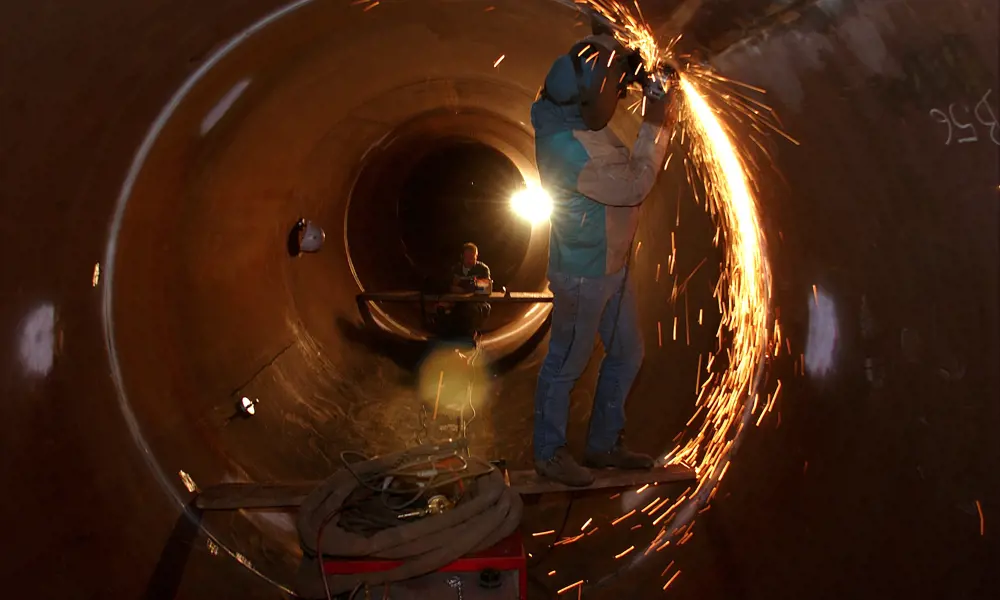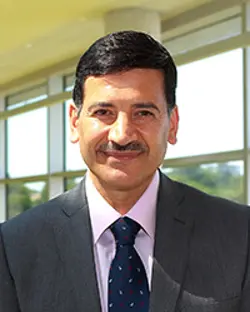
Engineering skills to better meet society’s needs
There is good news in the rise in the number of young people seeking to study engineering. Those working in engineering, and in engineering higher education in particular, will have been buoyed by the recent data on admissions and acceptances from the University and Colleges Admissions Service (UCAS). This showed a significant increase over the past decade in students applying for technology-based degrees. The intake in engineering subjects rose from 20,000 to 30,000, and from 26,000 to 31,500 in computer science courses*. Acceptances to artificial intelligence (AI) courses have increased by 400%, although actual numbers still only stand at 355 in total in 2020. And there is evidence too that the gender gap is closing. The ratio of UK male to female acceptances in engineering fell from 8.2 to 1 in 2011 to 5.0 to 1 in 2020, although computer science fared less well, with the gap falling from 6.2 to 1 in 2011, to 5.7 to 1 in 2020.
In this positive context, the skills that engineers and technologists acquire to shape the future have never been more important. The UN’s Sustainable Development Goals, global aims to achieve a better and more sustainable future for all, are now well and truly established as key drivers for future development. The race to achieve the UK government’s target of net-zero carbon emissions by 2050 is another great way of focusing minds and actions.
An outcomes-driven narrative to attract engineers
This outcomes-driven narrative may be what is required to attract even more young people into careers in engineering and technology. Shifting the attention from ‘becoming an engineer’ to addressing climate change or global poverty, for example, is more likely to have the desired result. Tackling the climate emergency, accessible healthcare and the environment are big motivations for young people, especially when the challenge is to increase diversity and attract students from groups that are under-represented in engineering. So, it’s to our advantage to present engineering as a ‘caring’ or ‘social good’ profession, one directly associated with solving problems and making people’s lives better.
The outcomes-based argument is equally valid for encouraging working engineers to understand the need for diversity in our profession. Looking more closely at what we produce as engineers, and whether it is truly accessible and equitable for all people and all parts of our society, forces us to realise that in the past we have not paid enough attention to the needs of others when producing our engineering solutions. This has been shown all too clearly with the effects of the COVID-19 pandemic and the Grenfell fire, for example, where poorer communities have been made more vulnerable by inadequacies in our built environment.
Addressing bias and impacts of decisions
There are many other examples of how our approach to engineering and technology builds bias into our work. It has never been more important to address this challenge as we develop new disruptive digital systems based on the use of data, AI and machine learning where built in, and in many cases undetectable, biases will persist for years. However, these are the more obvious examples that show the unintended consequences of some of our engineering solutions. The impacts of our decisions are harder to spot in other examples, such as the apparently uncontroversial specification of a ducting material in a new building, a decision usually made without any knowledge or reference to how this choice of material might negatively and disproportionately affect those who bear the brunt of toxic chemical production.
Many of us are becoming more aware of how the outcomes of our engineering endeavours have implications for social justice. Building a world that is fairer, more just, and will help us better meet the Sustainable Development Goals is something that we need a diverse engineering workforce to take on board.
Building a world that is fairer, more just, and will help us better meet the Sustainable Development Goals is something that we need a diverse engineering workforce to take on board
Change needed in engineering education
To support this, and to make the most of young people’s motivation, our engineering education must change. We need university courses that inspire thinking and creativity, translating ideas through engineering design to innovation that benefits humankind and the planet. And it will not be sufficient to simply tweak existing curricula to focus on engineering solutions to address an environmental crisis. To address the 21st century’s biggest challenges, we need engineers who are increasingly setting the agendas for a different and more sustainable way of living, as well as reimagining a world that pays equal attention to economic, social and environmental impact to create solutions with social value, and who are able to communicate these ideas effectively.
Engineering and technology courses require more industrial input, more knowledge of social science, and real project examples from around the world for students to address. Government funding akin to that announced in June 2020 for AI and data science courses would facilitate this transition. Changes to accreditation, through the ambitious Graduate Attributes and Professional Competency Framework being developed by the International Engineering Alliance for example, are already taking us in this direction. It is heartening to see that some of the UK’s own accreditation frameworks are also making the necessary changes to ensure that our future engineers can fulfil their role as creators of a more sustainable and inclusive economy.
***
This article has been adapted from "Engineering skills to meet society's needs", which originally appeared in the print edition of Ingenia 86 (March 2021)
Contributors

Dawn Bonfield MBE is the Equality, Diversity and Inclusion Chapter author of the UNESCO Engineering Report, published in March 2021. She is a Royal Academy of Engineering Visiting Professor at Aston University and a Royal Society Entrepreneur in Residence at King’s College London. She is a UK representative of the World Federation of Engineering Organisations, and Past President of the Women’s Engineering Society.

Professor Bashir Al-Hashimi CBE FREng is Executive Dean of the Faculty of Natural, Mathematical & Engineering Sciences at King’s College London. He has worked globally on research innovation into energy-efficient and reliable computing systems. He has received numerous awards for his research including the IET Faraday Medal in 2020.
Keep up-to-date with Ingenia for free
SubscribeOther content from Ingenia
Quick read

- Environment & sustainability
- Opinion
A young engineer’s perspective on the good, the bad and the ugly of COP27

- Environment & sustainability
- Issue 95
How do we pay for net zero technologies?
Quick read

- Transport
- Mechanical
- How I got here
Electrifying trains and STEMAZING outreach

- Civil & structural
- Environment & sustainability
- Issue 95